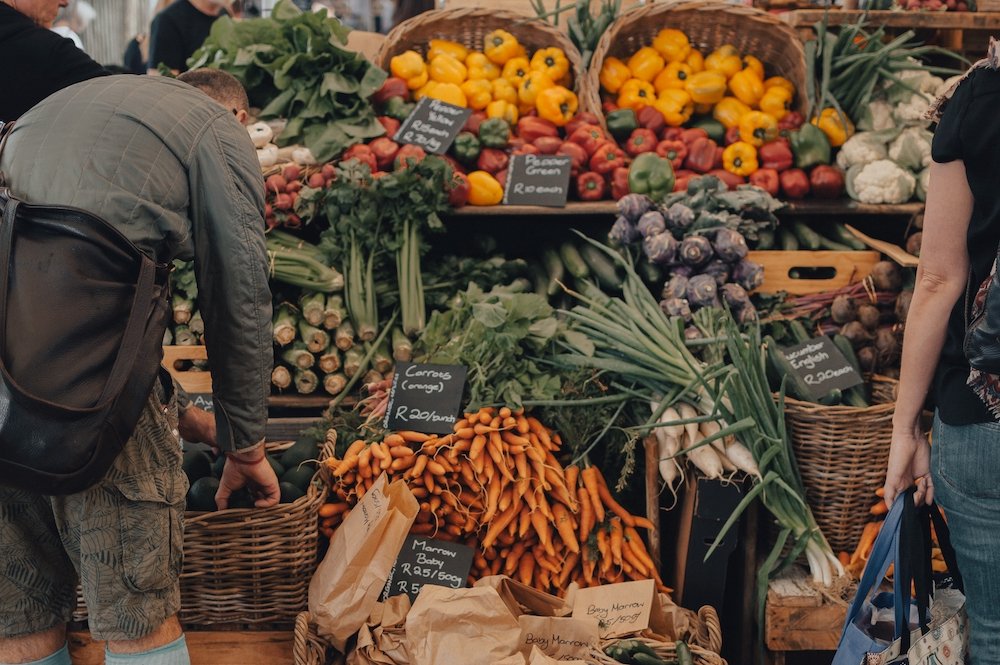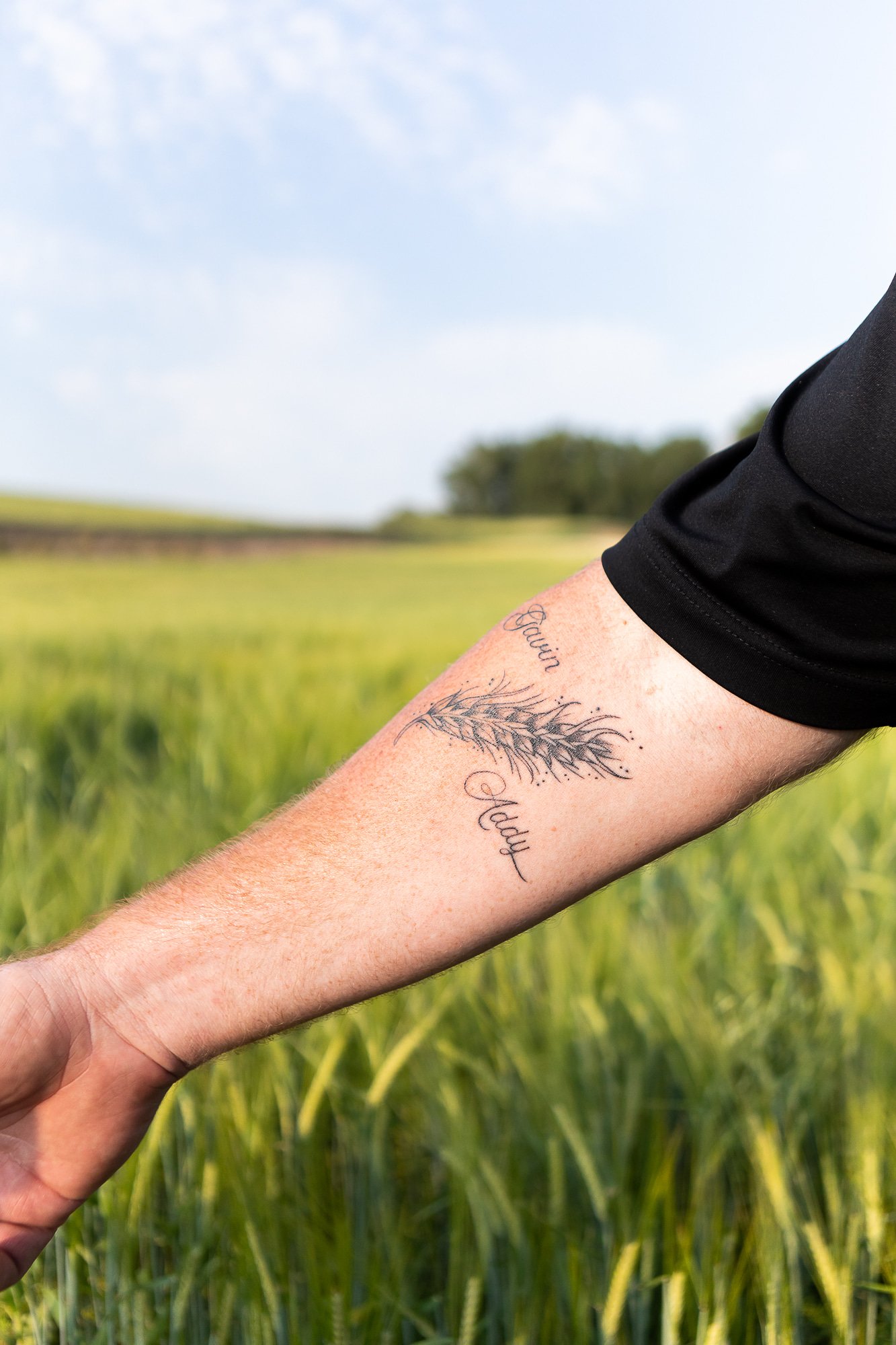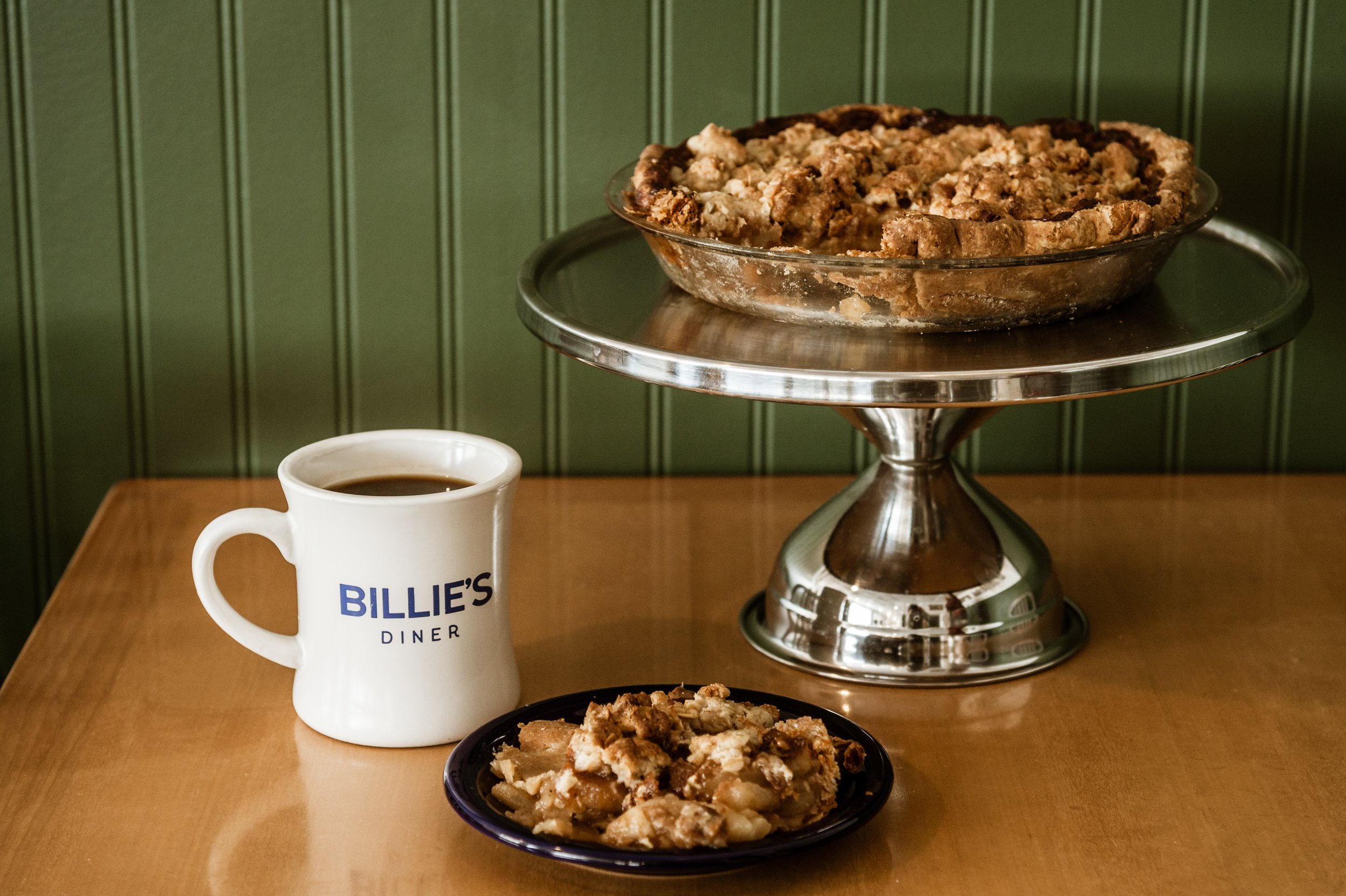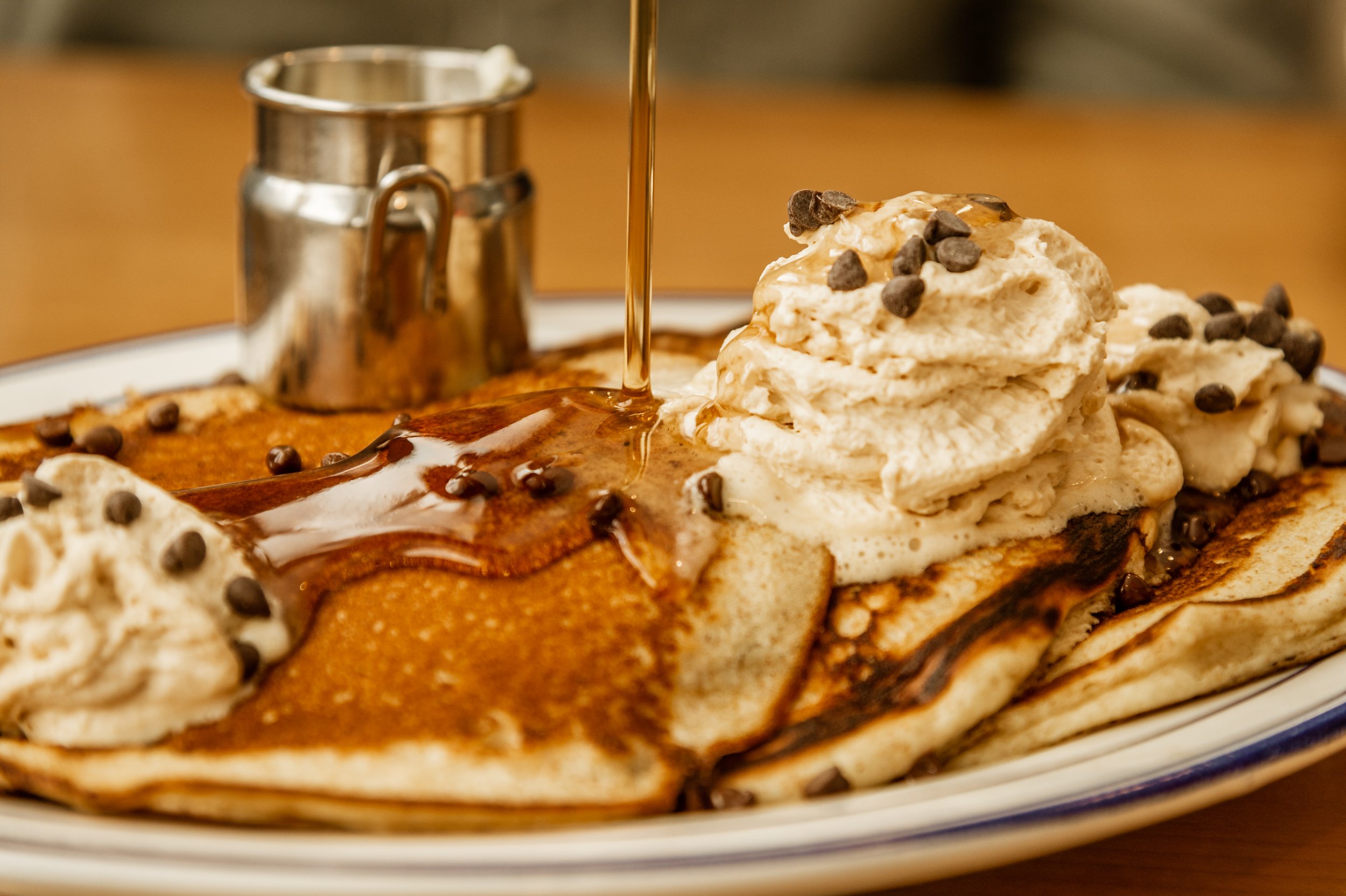A Call to Farms
A Call to Farms
For the Past Decade, Vets on the Farm has Helped Local Service Members Plant New Roots
BY SYDNEY FLUKER
PHOTOS BY NICO LOPEZ
Red Poppy Farm’s size isn’t remarkable and they don’t specialize in any particular type of heirloom produce. Driving past on Palouse Highway, it looks like many other suburban properties along Spokane’s southern edge, where the city starts waning into farm country. What makes this place different from the rest is the people who make up its staff. Red Poppy is home to Vets on the Farm, a program that for the past decade has helped veterans transition into civilian life through hands-on work in agriculture.
“It’s not just a program where there’s a job for you; it’s a community where you find family and friends, and a chance to build yourself up while giving back,” says Duane Zbranek, a retired Army medic and former greenhouse manager with Vets on the Farm who continues to volunteer, giving other local veterans the same opportunity to grow and serve.
After leaving the military, adjusting to civilian life can be challenging. By participating in the farm’s daily work, Zbranek and other veterans gain skills in everything from seeding to crop rotation, soil health and pest management, while also connecting with others who share similar experiences and backgrounds.
For many veterans, agriculture offers a new mission — a way to serve and protect communities through food security and sustainable practices.
“We’re here to help veterans find a new path to serving their country, because that’s really what they want to do,” says Vicki Carter, who helped bring the farm to life almost a decade ago. “Our food security is so directly tied to our national security — the two just go hand in hand. It gives them what they call their ‘next mission.’”
Farm Manager Grant Weber agrees.
“Vets aren’t lost, they just need a new path,” Weber says. “Something like this helps integrate them. Most veterans don’t want a handout, they want a hand up, so that’s what we’re trying to provide.”
The Beginning
A decade ago, veterans began to return home from Iraq and Afghanistan, dropped into civilian life after years in services with little to no support.
Around that time, Carter attended a screening for a documentary covering that very issue called “Ground Operations: Battlefields to FarmFields.” The documentary followed Michael Gorman and The Farmer Veteran Coalition in California, who created a farm to educate military people in agriculture to try and fix the declining farmer population and offer career paths to those interested.
“When I left that film, I thought, ‘what’s going on in Spokane or in Washington or in this region?’” Carter says. “Because I hadn’t heard of any of this.”
Carter, director of Spokane Conservation District, comes from a large military family, at the time having five deployed family members. Worried they would face the same transitional issues upon returning, she began looking for similar veteran farm associations in the Inland Northwest and decided to give Gorman a call.
“I couldn’t believe that he even took my phone number or my call, but we ended up spending an hour and a half on the phone,” Carter says.
Inspired by her call with Gorman, Carter found partners and approached the Spokane Conservation District board with a mentorship training program for veterans interested in agriculture.
Emtman Brothers Farms in Valleyford answered their call for help, offering the three-acre Red Poppy Farm off their main farm just north of Spokane. Vets on the Farm leases the land for free, and will have it for at least two more seasons. The name itself is a memorial for veterans — red poppies, also known as remembrance poppies, are worn in support of the armed forces community.
From there the team began getting the farm ready — building out greenhouses, putting up a hoop house, installing irrigation systems and building up compost.
The farm formed the Washington State chapter of the Farmer Veteran Coalition, offering training, financial and technical resources across Washington State under that umbrella.
As director of Spokane Conservation District, Carter’s name is stamped on a lot of projects and paperwork — but Vets on the Farm will always hold a special place in her heart.
“From the bottom of my heart, this has been the most rewarding work I’ve ever done, and I couldn’t be more proud and more honored to have shepherded this project into what it is,” Carter says. “The veterans and people I’ve gotten to know and work with are some of the most amazing people I’ll ever know. We have a great crew up there today and it’s really found its stride.”
Red Poppy Farm
Three acres of land supports the microfarm, which only grows on one acre. The team of seven — three full-time farmers and four part-timers — manages the hoop house, greenhouse, grow fields, chicken coop, bee farm, washroom, cold storage and farm stand. Volunteers form an important part of the team, helping out with weeding and general management when needed.
Red Poppy Farm is the opposite of a monofarm, growing around 20 different kinds of vegetables throughout the year, including different varieties. The team uses a crop rotation to keep the soil healthy, rotating where each plant is grown and growing cover crops in between planting to give nutrients back to the soil.
“We always try to cut back or find out what we can or can’t grow,” Grant says. “Being a learning farm, we want to grow as many things as we can so when our interns come through, we can show them different ways to grow things.”
According to field manager John Hoff, the team sticks to organic practices and “is probably way above the standard for organic,” but the cost is a barrier to the farm being officially certified. Vets on the Farm doesn’t use herbicides or pesticides, instead partnering with Tainio Biologicals to use several of their biological inoculants for establishing populations of beneficial soil microbes. Tainio Biologicals is local to Spokane and donates the product to support the farm, even coming to teach classes to the team on harvest and soil health.
“For a farm this size, it just wouldn’t pay to get certified [as organic],” Grant says. “But when our customers come out, we give them a tour. They see how we grow things … Our goal is to grow nutrient-dense and hyperlocal food, so we don’t ship any stuff or grow enough of one thing to send it far. When you get stuff from us, it was likely harvested that week.”
The farm typically works with two to three interns per season, open to veterans and non-veterans. When it's a veteran interning, the team tries to find the money to pay a stipend to get them through the program or works with their schedule to teach as much as possible. Sometimes, the farm receives students from Spokane Community College and Washington State University who volunteer for their practicum. The farm has also worked with active-duty soldiers through SkillBridge, a military program that allows those working full-time within the military to intern with different organizations and gain new skills.
“We’re not just growing vegetables, we want to grow farmers,” Grant says. “Even if they come through and realize ‘this isn’t for me,’ at least they came through here to figure it out without wasting time, energy and money on their own stuff.”
Grant has been with Vets on the Farm for eight of its nine years, growing with the program from an intern to now working as farm manager. He grew up on a wheat farm in Ritzville before serving in the Air Force for 21 years, but lacked official training in farming when he joined the team.
Eight growing seasons later, Grant oversees the day-to-day operations of the farm with the help of Hoff, a Marine Corps and Army National Guard veteran, and Ginny Weber, his wife and fellow Air Force veteran who joined as an intern two years ago.
Ginny began volunteering after feeling burnt out from working in the personal insurance world. She’s since taken over social media and the chicken and duck coop, earning herself the title as the farm’s “crazy chicken lady.”
Vets on the Farm is a sticky place — those that start working tend to stick around, even if it's just in a volunteer capacity. Ginny’s original seasonal internship turned into a full-time position and Zbranek, who has since moved on to start his own microgreen farm called Ramblin’ Roots, still makes his way back to the farm to help where he can.
Grant says their goal is to provide a space for veterans to come out, be around other vets and feel comfortable enough to talk.
“You don’t explain a lot when you’re around other veterans,” Grant says. “We give each other crap because we’re all from different services, but in general I find you open up to other veterans more. People come out here and tell their story. We’ll be on the field weeding or doing something and I hear ‘I can’t believe I just told you that,’ but I think that’s a big part of it.”
“Last summer, there were four of us here and a kid started telling his story,” Ginny adds. “I could hardly even talk because, yes, Vicki’s intent was to teach agriculture and give veterans another kind of life, but this connection — it was a very emotional story. And that’s why we’re here; we’re here for veterans, to help each other, listen and not judge.”
Aside from providing a community space and career training, Grant says the community supports one another through Vets on the Farm’s “Call to Farms.” If a fellow farmer or veteran needs help, the “Call to Farms” calls all available associates out to help. Teams have helped with everything from general management to cleaning farms in disarray after emergencies.
Every cent earned from produce goes back into the farm and ensures veterans have the financial support necessary to participate in the program. For those wanting to support the farm in additional ways, donations are always appreciated and directly fund programs that benefit veterans.
Vets on the Farm runs a farm stand on site at 7524 S. Ellis Rd. Its produce can also be found in the recipes at Billie’s Diner in Airway Heights and for purchase at the Casa Cano Farms farmstand.
For hours and information, visit their facebook.
Why the Red Poppy?
Poppies symbolize remembrance largely because of their growth on the devastated battlefields of World War I. Canadian Lieutenant Colonel John McCrae’s 1915 poem “In Flanders Fields” highlighted the vibrant flowers as a poignant reminder of soldiers’ sacrifices. In November of 1918, American humanitarian Moina Michael wrote “We Shall Keep the Faith,” vowing to wear a red poppy as a symbol of remembrance at the conclusion of the war. Today, wearing a poppy honors fallen heroes, evoking both their memory and hope amidst conflict’s scars, fostering continued reflection


































